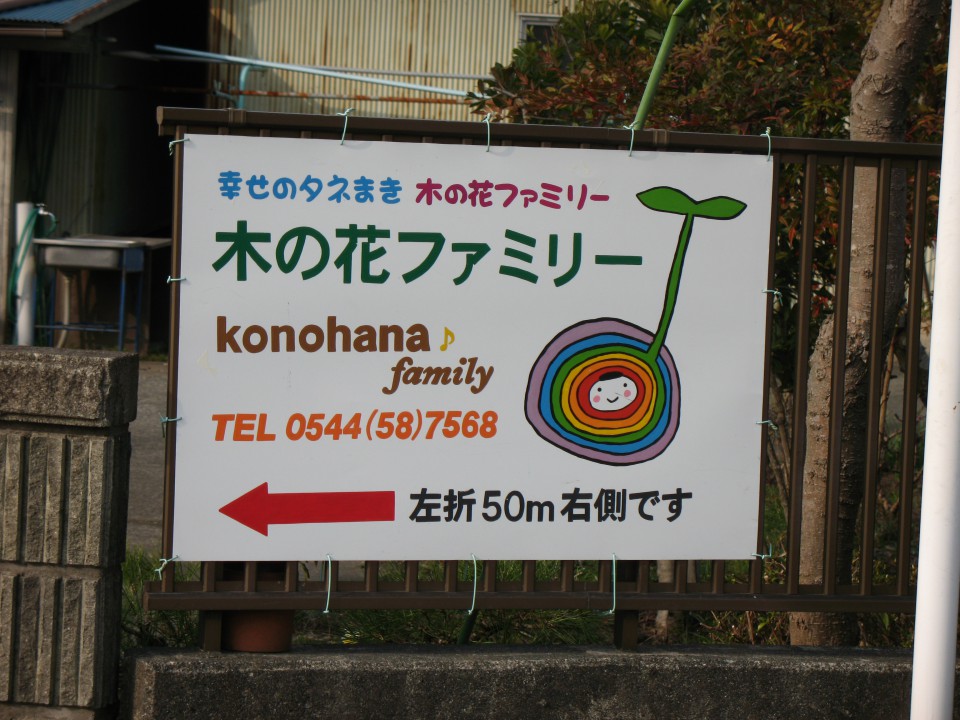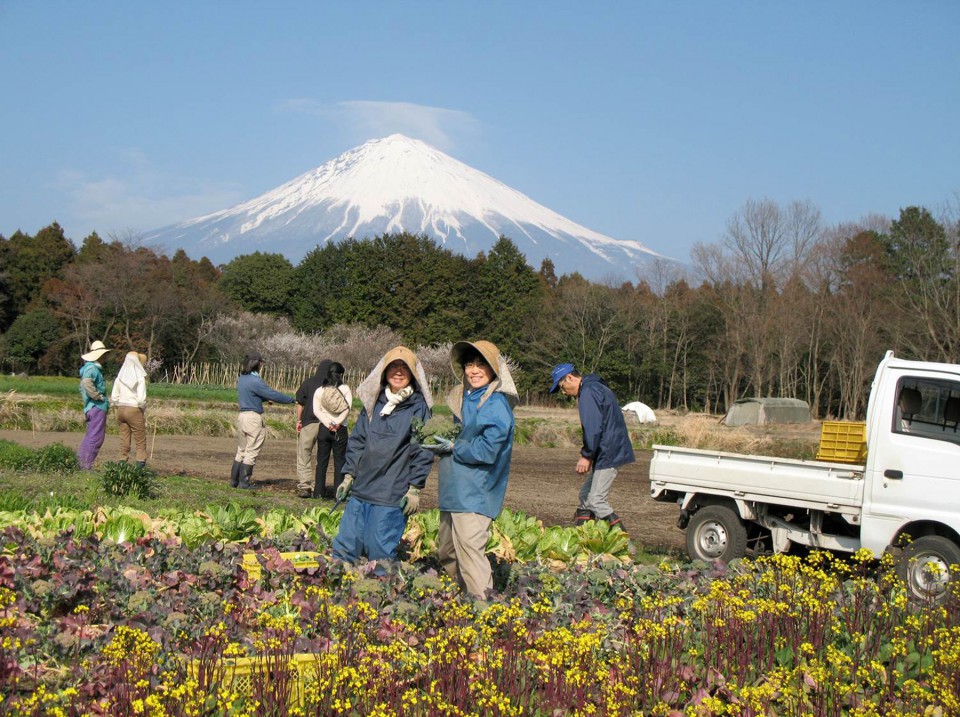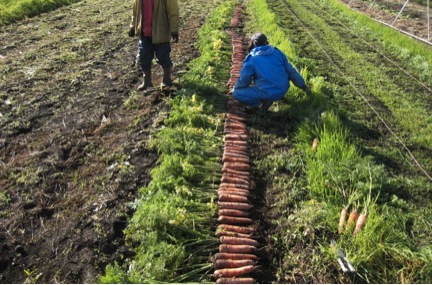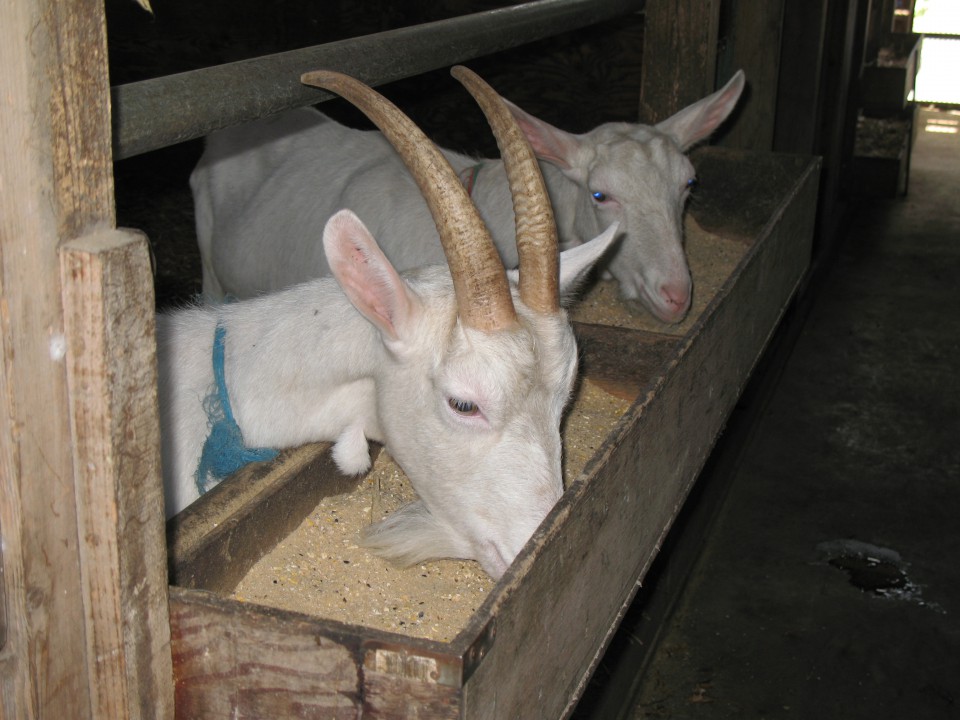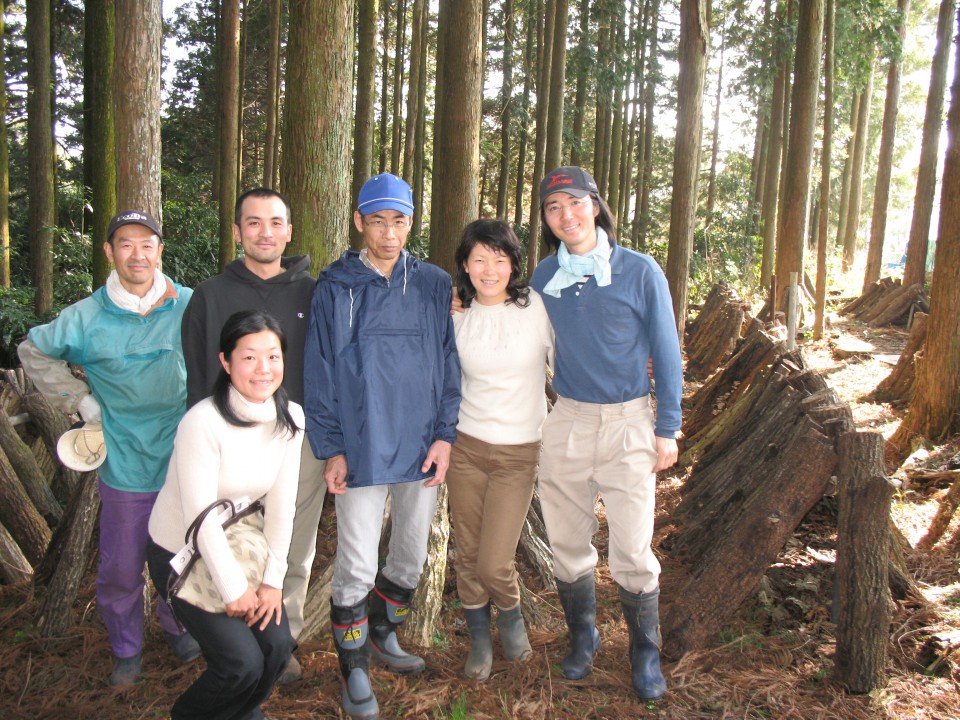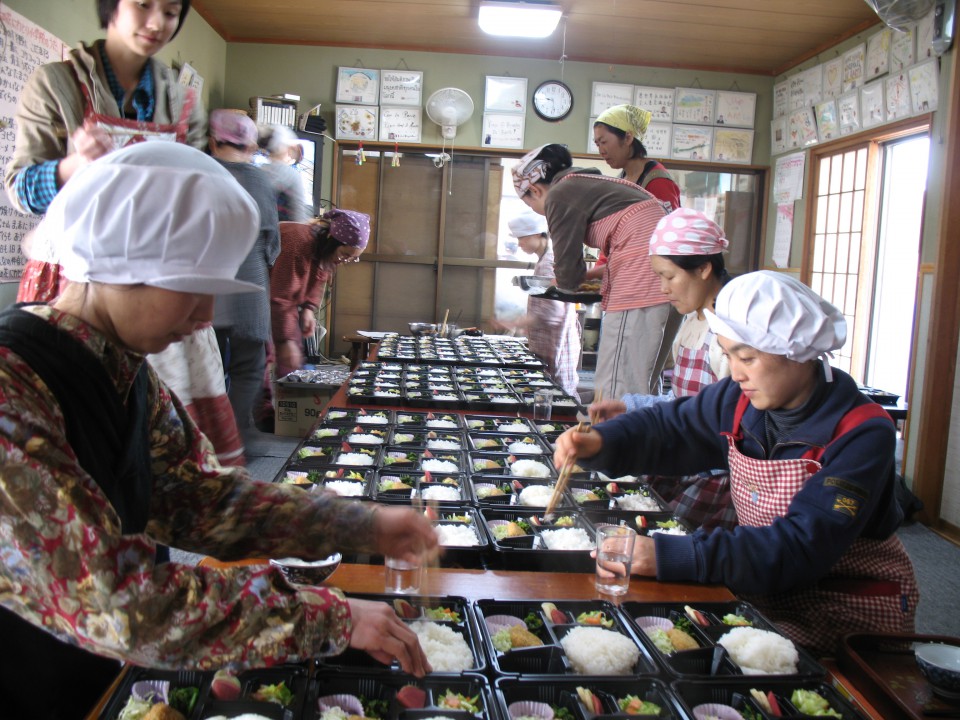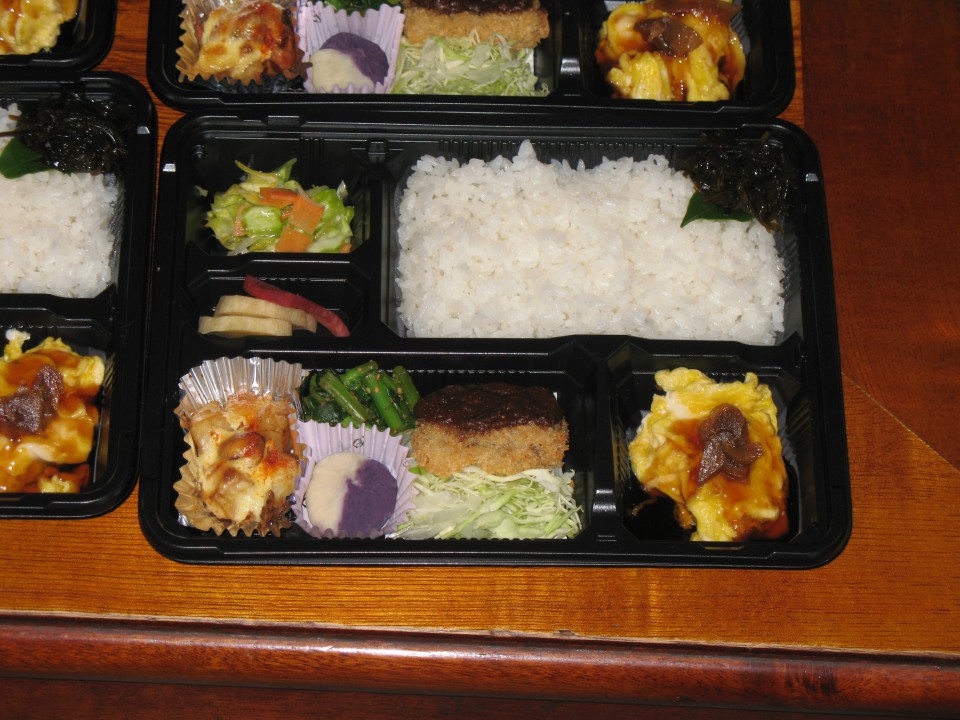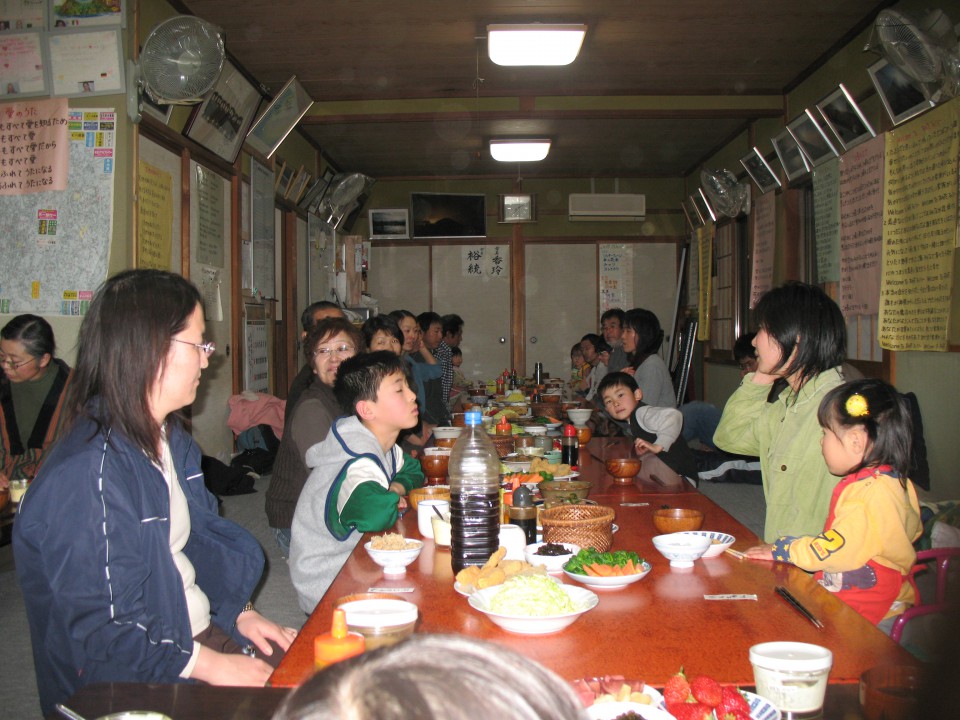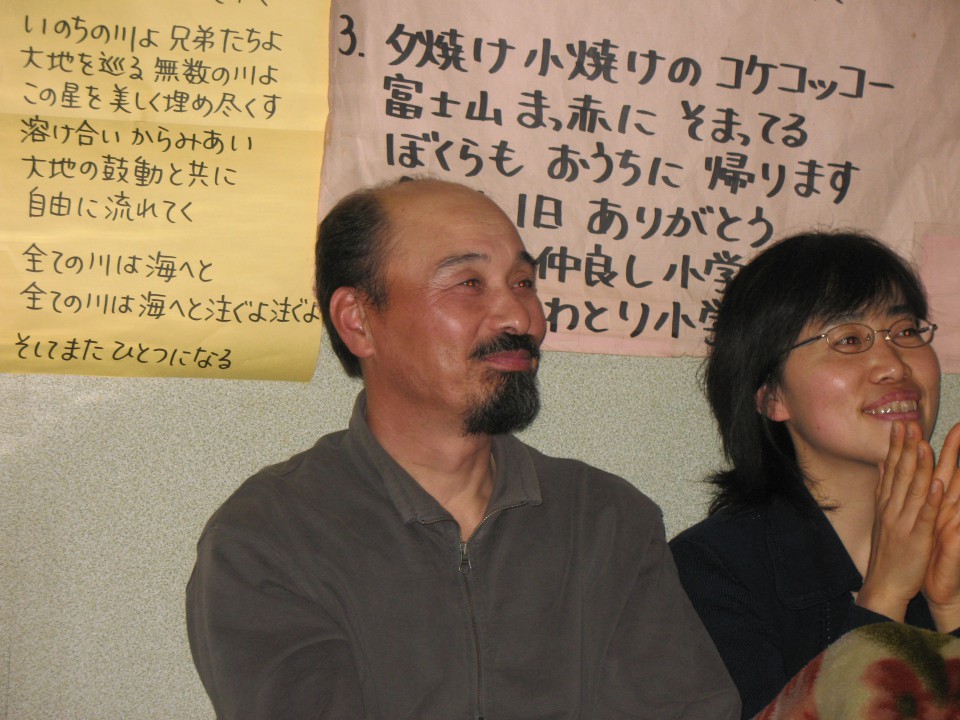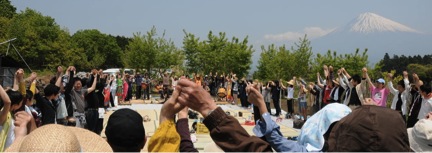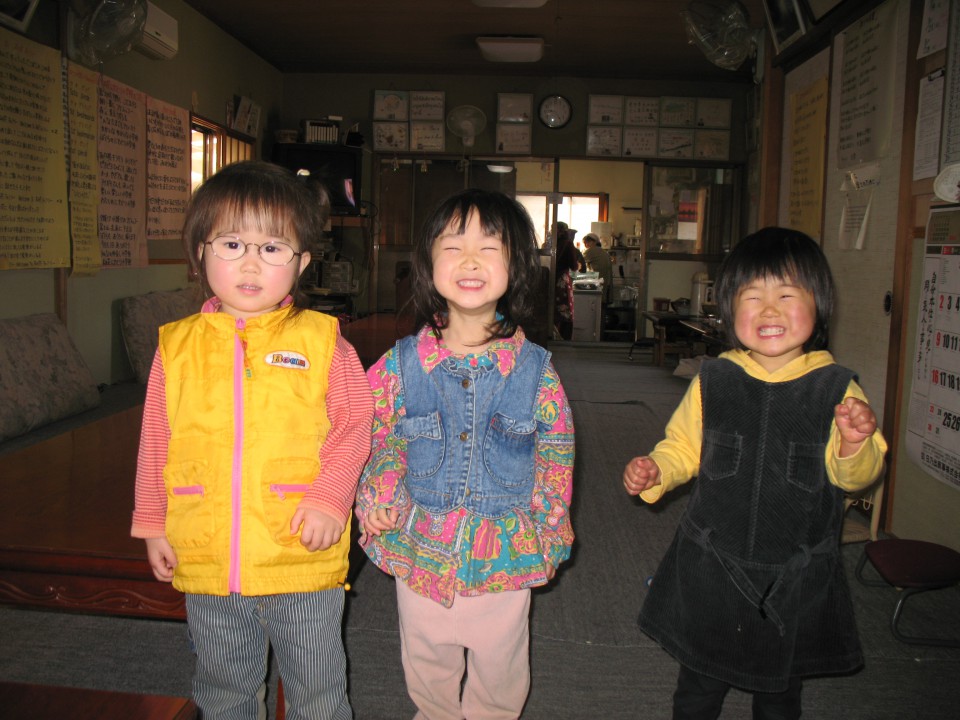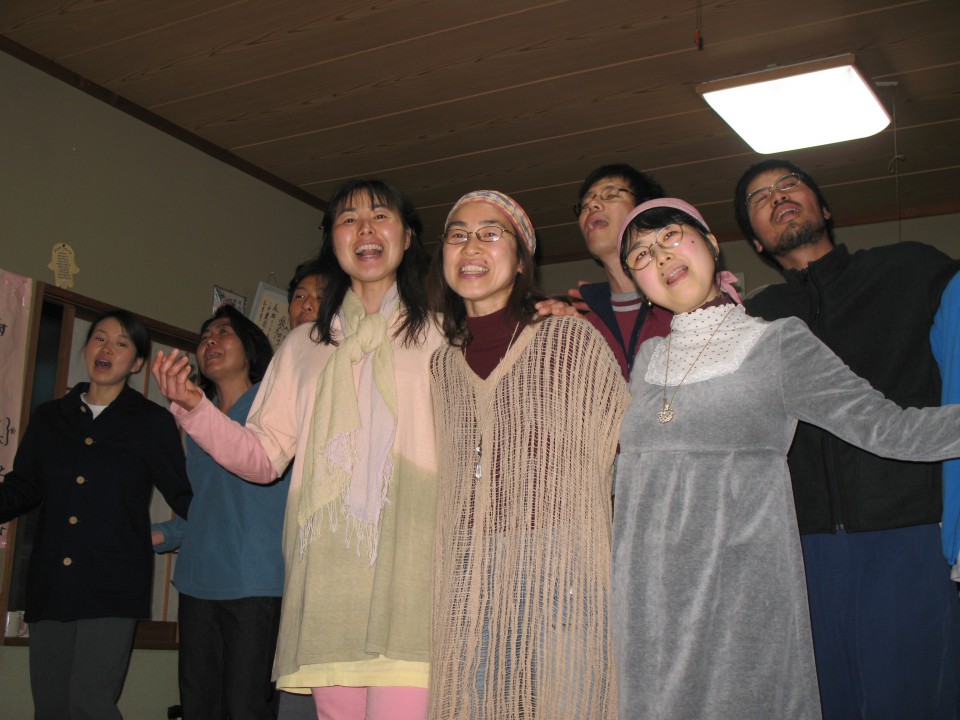Konohana
Konohana Family, an ecovillage that sits under the towering presence of Japan’s Mt. Fuji, takes its name from the goddess once thought to inhabit this venerable mountain.
As of 2012, 58 adults and 25 children belong to the Konohana Family. Because members share close quarters, all meals and all finances, their ecological footprint is about 1/3 the Japanese average—or 1/6 the US average. In other words, a Konohana lifestyle would be sustainable if everyone on Earth lived it.
The community’s bountiful fields grow 250 varieties of rice, soy, and vegetables. Farming is at once the basis of the community’s collective economy, its efforts to come into harmony with nature, and its spiritual life. Konohana’s motto is, “Before cultivating the field, first cultivate the mind.”
The community glue is the intense after-dinner conversation that ensues every evening and lasts sometimes until the early morning hours. Konohana’s members use this time to reflect on how well they were able to implement God’s will that day.
On my first night, I received the warmest welcome I’ve ever received as a stranger: a personal performance by Konohana’s singers. With passionate honesty, they sang songs they had themselves written about such personal matters as giving up selfishness and coming to love one another and the Earth. As other guests arrived during my visit, I realized that they do this for everyone who comes.
Official website (in English): http://www.konohana-family.org/for-non-japanese-speakers/
United Nations University Video: “Mt. Fuji Eco-village Connects to a Greener World” http://ourworld.unu.edu/en/konohana
